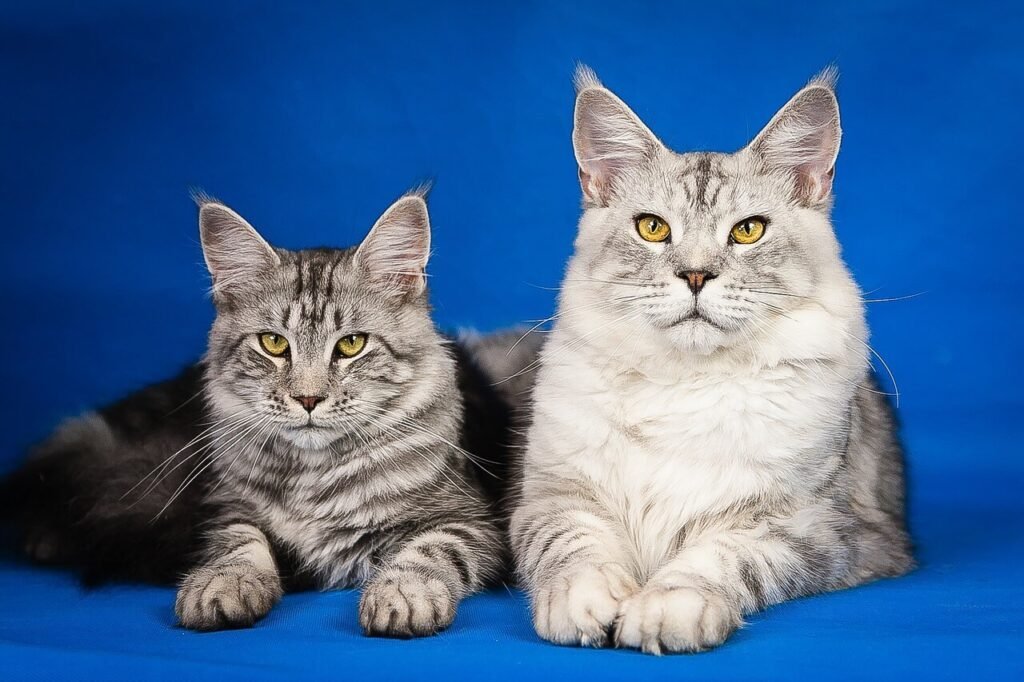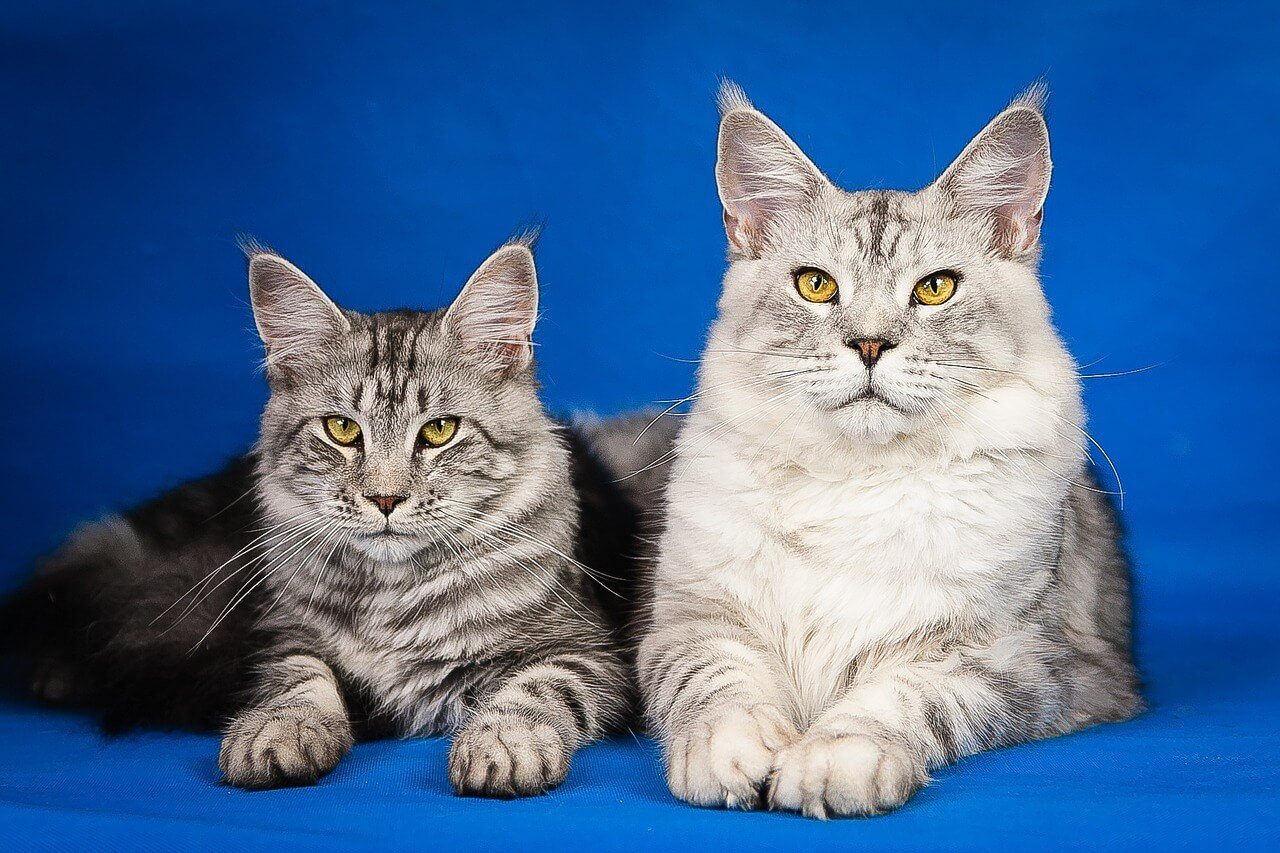Maine Coon Teeth vs Normal Cat Teeth: What’s the Difference?
The majestic Maine Coon, known for its impressive size and gentle demeanor, often stands out in the feline world. But what about their teeth? Are Maine Coon teeth different from those of other cats? While all domestic cats share a similar dental structure, certain characteristics set Maine Coons apart. Understanding these differences can help owners provide better care for their furry companions. In this blog post, we’ll explore the unique traits of Maine Coon teeth, common dental issues they may face, and how to maintain their oral health effectively.
Key Differences Between Maine Coon Teeth and Normal Cat Teeth
While Maine Coons share the same basic dental anatomy as other cats, their larger size and distinct features influence their dental needs. Here are some notable differences to keep in mind:
Larger Jaw Structure:
Maine Coons have bigger jaws compared to most cats, which means their teeth are spaced slightly farther apart. This can reduce the risk of food getting trapped between teeth.Stronger Bite Force:
Due to their size and hunting instincts, Maine Coons often have a stronger bite force, allowing them to chew tougher foods or toys more effectively.Slightly Longer Teeth:
Proportionate to their larger skulls, Maine Coons may have slightly longer teeth than smaller cat breeds, though the difference is subtle.Unique Dental Alignment:
Their teeth are often aligned differently due to their broader facial structure, which can affect how plaque builds up over time.Delayed Teething Process:
Maine Coon kittens may take longer to lose their baby teeth and develop adult teeth, likely due to their slower overall growth rate.
These differences highlight why Maine Coons require tailored dental care to address their specific needs and prevent potential issues.
Common Dental Issues in Maine Coons
Like all cats, Maine Coons are prone to certain dental problems. However, their unique traits can make them more susceptible to specific conditions. Here’s what you need to know:
Gingivitis and Gum Disease:
Maine Coons’ larger mouths can sometimes lead to gum inflammation if plaque isn’t removed regularly. Gingivitis is a common early sign of dental trouble.Tooth Resorption:
This painful condition occurs when a cat’s body begins breaking down its own teeth, affecting up to 75% of adult cats, including Maine Coons.Plaque Buildup:
Despite their wider tooth spacing, Maine Coons are still prone to plaque accumulation, especially if their diet lacks variety.Misaligned Teeth:
Some Maine Coons may develop malocclusions (misaligned teeth), which can cause discomfort or difficulty eating.Delayed Kitten Teething Problems:
Slow teething in kittens can lead to retained baby teeth, which may require veterinary intervention to prevent overcrowding.
Understanding these risks allows you to monitor your Maine Coon’s oral health closely and seek professional help when needed.
Check this guide 👉Maine Coon Cat Size vs Domestic Cat: Best 7 Expert Tips!
Check this guide 👉Norwegian Forest Cat vs Maine Coon: Best 7 Expert Tips!
Check this guide 👉The Majestic Maine Coon Tuxedo Cat: Best 7 Expert Tips!

Maine Coon Dental Traits | Normal Cat Dental Traits |
|---|---|
Larger jaw structure | Smaller, more compact jaw |
Stronger bite force | Average bite force for size |
Slightly longer teeth | Standard-sized teeth |
Wider spacing between teeth | Closer tooth alignment |
Delayed teething process | Faster teething development |
Tips for Maintaining Your Maine Coon’s Oral Health
Proper dental care is essential for ensuring your Maine Coon stays healthy and happy. Here are some practical tips to keep their teeth in top shape:
Brush Regularly:
Use a cat-specific toothbrush and enzymatic toothpaste to clean your Maine Coon’s teeth at least twice a week.Provide Dental Chews:
Dental treats designed for cats can help reduce plaque and tartar buildup while satisfying their natural chewing instinct.Incorporate Wet Food:
Mixing wet food into their diet can reduce dry kibble’s abrasive effect on gums, preventing irritation.Schedule Vet Checkups:
Annual dental exams by a veterinarian can catch early signs of issues like gingivitis or tooth resorption.Offer Safe Chew Toys:
Durable, cat-safe toys encourage chewing, which helps naturally clean teeth and strengthen jaw muscles.
By following these tips, you can significantly improve your Maine Coon’s oral hygiene and overall well-being.
Signs Your Maine Coon May Have Dental Problems
Catching dental issues early is crucial for preventing long-term damage. Watch for these warning signs that your Maine Coon may need professional attention:
Bad Breath:
Persistent foul-smelling breath could indicate gum disease or tooth decay.Drooling Excessively:
Unusual drooling is often a sign of oral pain or discomfort.Difficulty Eating:
If your Maine Coon hesitates to eat or chews on one side, it might be due to dental pain.Red or Swollen Gums:
Inflamed gums are a clear sign of gingivitis or infection.Pawing at the Mouth:
Frequent pawing or rubbing their face against surfaces suggests irritation or pain.
Recognizing these symptoms early ensures timely treatment and prevents further complications.
Preventive Measures for Long-Term Dental Health
Preventing dental issues before they arise is key to maintaining your Maine Coon’s well-being. These preventive measures can make a big difference over time:
Introduce Dental Care Early:
Start handling your Maine Coon’s mouth and teeth when they’re young to build familiarity and trust.Monitor Diet Closely:
Avoid feeding excessive soft foods that can stick to teeth and promote plaque formation.Use Water Additives:
Specialized water additives can reduce bacteria levels in your cat’s mouth, supporting cleaner teeth.Rotate Chew Toys Regularly:
Offering a variety of textures keeps chewing engaging and promotes even wear on teeth.Stay Consistent with Cleanings:
Skipping routine cleanings can lead to rapid plaque buildup, so consistency is vital.
Taking these steps ensures your Maine Coon enjoys lifelong dental health and avoids unnecessary pain or procedures.
How Genetics Influence Maine Coon Teeth
Genetics play a significant role in shaping the dental characteristics of Maine Coons. Understanding these influences can help you anticipate potential challenges:
Hereditary Tooth Strength:
Maine Coons inherit strong enamel, making their teeth more resistant to chips and cracks.Breed-Specific Conditions:
Certain dental issues, like malocclusions, may run in Maine Coon families due to genetic predispositions.Slower Development Timeline:
Genetic factors contribute to their delayed teething process, requiring extra patience during kittenhood.Size Correlation:
The breed’s large size directly impacts the size and spacing of their teeth, influenced by inherited traits.Vulnerability to Resorption:
A genetic link exists between Maine Coons and higher rates of tooth resorption, necessitating vigilant monitoring.
Acknowledging these genetic factors empowers you to tailor your care approach to your Maine Coon’s unique needs.
Benefits of Professional Dental Cleanings
Professional cleanings go beyond what you can achieve at home, offering comprehensive care for your Maine Coon’s teeth. Here’s why they’re worth considering:
Thorough Plaque Removal:
Vets use specialized tools to remove plaque and tartar from hard-to-reach areas under anesthesia.Early Detection of Issues:
X-rays taken during cleanings can reveal hidden problems like root infections or fractures.Polishing for Smooth Surfaces:
Polishing reduces rough spots on teeth where bacteria can accumulate, lowering the risk of future decay.Education and Guidance:
Veterinarians provide personalized advice on improving your at-home dental care routine.Peace of Mind:
Knowing your Maine Coon’s teeth are professionally cared for gives you confidence in their long-term health.
Regular professional cleanings complement your efforts at home, ensuring your Maine Coon’s teeth stay strong and healthy.
Frequently Asked Questions About Maine Coon Teeth
Are Maine Coon teeth bigger than other cats’ teeth?
Yes, proportionally, Maine Coon teeth are slightly longer due to their larger skull size.
How often should I brush my Maine Coon’s teeth?
Aim to brush their teeth at least twice a week for optimal oral health.
What causes tooth resorption in Maine Coons?
The exact cause is unknown, but genetics and age play significant roles in this condition.
Can Maine Coons eat dry food without harming their teeth?
Dry food can help scrape away plaque, but it shouldn’t replace regular brushing or vet visits.
When should I start caring for my Maine Coon kitten’s teeth?
Begin brushing gently as soon as their adult teeth emerge, around 6 months of age.
Prioritizing Your Maine Coon’s Dental Health
Maine Coons are extraordinary cats with unique needs, including specialized dental care. By understanding the differences between Maine Coon teeth and those of normal cats, you can take proactive steps to ensure their oral health remains in excellent condition. From regular brushing to monitoring for signs of trouble, every effort you make contributes to a happier, healthier life for your beloved pet. Remember, a little attention to their teeth today can save them from significant discomfort tomorrow.
Dog Tapeworm Life Cycle: Best 7 Expert Tips! – Learn how tapeworms infect dogs, spot symptoms, and break the cycle with expert prevention strategies.
Anxious Cat Body Language: Best 7 Expert Tips! – Learn to spot signs of stress, understand triggers, and help your cat feel safe and relaxed.
Anxious Dog Body Language: Best 7 Expert Tips! – Learn to spot signs of anxiety, respond effectively, and help your dog feel safe and secure.
Is Breeding Dogs Bad? Best 7 Expert Tips! – Explore the ethics, benefits, and risks of dog breeding to make informed decisions for a better future.





